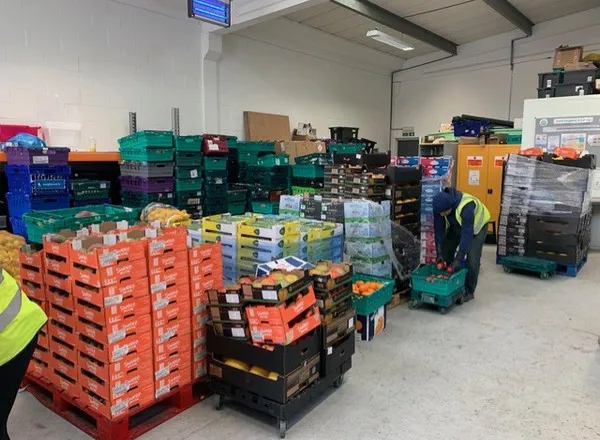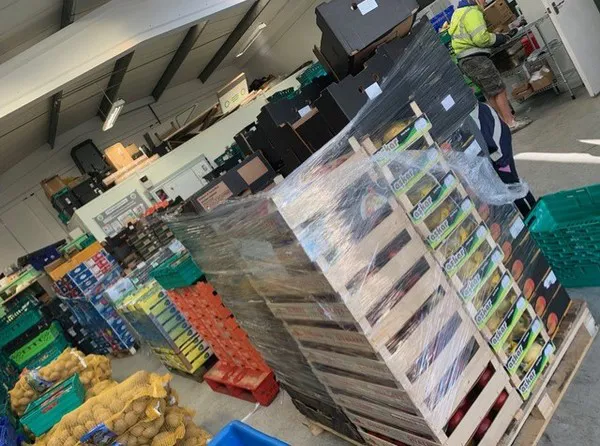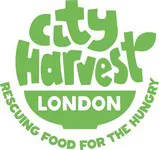Food redistribution charity City Harvest, which is based in Acton but also runs a facility out of New Spitalfields Market, has been inundated with food products to distribute to charities across locked down London. The nutritional challenge created by the coronavirus pandemic is causing a wider set of societal problems – problems that are certain to become ever more acute when the virus has been eradicated – and we spoke to Nikki Tadema, COO of City Harvest London, to ask what the charity needs and how the fruit and vegetable industry can contribute.
Even before the Covid-19 outbreak, City Harvest’s invaluable service was reducing the amount of food that goes to landfill, supporting the most vulnerable people in London and of course, reducing the burden on the NHS. Now what we do has been put into starker context.

Earlier this week, a collective of New Spitalfields tenants donated a large volume of fruit and vegetables to City Harvest, as part of the market-wide effort to support the NHS and charities in their local communities. “The donation from the Spitalfields tenants was fabulous,” says Nikki. “Particularly in the East End, where because of the cultural mix, fruit and vegetables are a huge part of what we do. If we have 3-4 pallets a week of fresh produce of the quality we received yesterday, that’s enough for around 3,000 meals. Of course, we know we are an outlet for product that hasn’t been sold and we play a big part in reducing the volume of food that goes to landfill, but the days of sorting through pallets of rotten product to find stuff we can use are gone.”
While the last few weeks have exacerbated the plight of so many people in need in London, and placed an additional strain on the already busy City Harvest team, the future is already occupying Nikki’s mind. “Hopefully we can look forward to bigger and bigger donations in the future,” she says. “We are already looking at the post-Covid landscape, analysing how much more food we are going to need and looking at ways to redistribute it.
“Sadly, it does not look good. There will be far more homeless and unemployed people when this is over and demand from food banks and various charities supporting those in need of food will increase dramatically. We are already distributing meals to 300 charities across London and there are more than 130 on the waiting list, plus 67 projects set up during Covid, which desperately need our services.”
She adds: “Generally speaking, we’d be receiving 35-40 tonnes a week of food, but these last two weeks have seen donations leap to unprecedented levels. In the last 10 days, we’ve dealt with 124 tonnes and we’ve had to ask landlords for extra warehouse space and bring in more delivery drivers. We’ve had up to 60 vehicles in our yards at any one time.

“Our facility at New Spitalfields has been mostly used for fruit and vegetables until now, but the need for extra capacity will see it increasingly take in a whole range of ambient product. That’s good for us at the moment, even if it does present challenges.”
In the five years before Nikki joined City Harvest from the commercial world in May 2019, the charity had delivered 5 million meals. In the 11 months since then, more than 4m meals have left its depots. “If this was a commercial business, the order book would look incredible,” Nikki says. But City Harvest is not a commercial business, it’s a not-for-profit organisation and it this week launched a GoFundMe push to raise at least £50,000 to pay for the significantly increased activity.
What the charity itself needs as much as anything though is for commercial businesses to look past their bottom line and start donating whenever they can, both during the current crisis and after the coronavirus threat has subsided. “I understand that commercial businesses have to make money – it’s not long since I left the commercial world myself. There is so much food around at the moment, because the restaurants have all closed and the grocers, the bakeries and the fishmongers have all been incredibly generous. However, we’re going to need to see this continue and donations from any business or collective of fruit and vegetable businesses will always be gratefully received.”
 • If you have fresh produce to donate or you would like to volunteer to help City Harvest in any other way, please phone 020 7041 8491 and speak to one of the City Harvest team.
• If you have fresh produce to donate or you would like to volunteer to help City Harvest in any other way, please phone 020 7041 8491 and speak to one of the City Harvest team.
• The charity is also raising money in order to scale up quickly to meet the increasing need for its services in London. To donate, click here.
